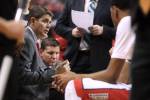Important guidelines for landing that perfect job
(BPT) - Graduation season has begun and students will be out in droves trying to find jobs that will enhance their careers. But before beginning the resume and interviewing process, there are certain do’s and don’ts that students should be aware of so they will be competitive in today’s limited job market.
“Beyond the usual resume and interview, it is also important to note that having a social media presence is mandatory,” says Stephanie Hausladen, director of career services for Heald College – Fresno. “Recruiters will do their homework before they invite you in for an interview – 98 percent of recruiters are using social recruiting according to a recent survey from Bullhorn.”
Hausladen says to keep these tips in mind:
Social networking do’s
* Recruiters using social media to check out potential employees breaks down to the following: LinkedIn (97 percent), Facebook (51 percent), Twitter (49 percent), Google+ (19.1 percent), and Pinterest (3.6 percent), so make sure your bio, your skill sets and your interests are current and accurate and be sure to have a professional photograph taken and used for these sites.
* Google your name before being interviewed so you know what is out there. Your interviewer will check all social media outlets before talking to you.
* Set those privacy settings. If you don’t, the world will know what you did over the weekend and it could jeopardize your chances of getting the interview or even the job.
Social networking don’ts
* Don’t tweet anything inappropriate, someone is always looking.
* Don’t post compromising pictures, jokes or personal stories on the Internet. Recruiters and potential employers are checking.
Beyond social media, an integral process of job hunting involves having a proper resume, below are some resume do’s and don’ts to remember.
Resume do’s or FAKTA
Focus: Make your resume reader friendly and use bullet points for specifics.
Appearance: Do not use the title resume. Put name, address, one phone number, an email address, education, and experience. In describing you former employment list your title/position, the name of the employer, the city and state (no street address) and dates of employment. In describing your education spell out the name of the degree (Associate of Arts, Bachelor of Arts), the name of the college, the city and state where it is located and your major and minor. Do not justify margins or use smaller than 10.5 font.
Keywords: In order to get noticed, your resume needs to contain keywords that directly target the jobs you are interested in. Your resume keywords should include specific job requirements, including your skills, software and technology competencies, relevant credentials and previous employers. There are various websites that list keywords.
Transferable skills: Transferable skills are the skills you've gathered through various jobs, volunteer work, sports or other life experiences that can be used in your next job or new career.
Accomplishments: A solid list of accomplishments on a resume can demonstrate your work ethic and ability to achieve results but avoid exaggeration, irrelevancies and ancient history. Accomplishments are more important to describe than duties.
Resume don’ts
* Don’t have misspellings or typos; proofread carefully.
* Don’t put a career objective statement at the beginning.
* Don’t use personal pronouns or include personal interests or hobbies.
* Don’t lie.
* Don’t have an inappropriate email address. What may have been cute in college may not be accepted in a professional setting.
Interview do’s
* Wear appropriate, conservative clothing.
* Arrive at least 10 minutes before the interview to give yourself time to freshen up.
* Treat others in the office with respect. They may be asked how you treated them.
* Have a firm handshake.
* Make eye contact with the interviewer at all times.
* Write the interviewer a thank you note.
Interview don’ts
* Don’t make excuses for past decisions or make negative comments about former employers.
* Don’t bring up salary or appear desperate for employment.
* Don’t treat the interview casually like you are shopping around for a job.
* Don’t chew gum or suck on candy (including breath mints).
* Don’t play with your cellphone while waiting for your interview to start.
* Don’t interrupt the interviewer.
By following these guidelines, prospective employees will have a better chance to compete in the job market and land that perfect job. The Internet is an invaluable source of information on how to be the best candidate for a job.























